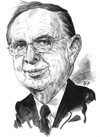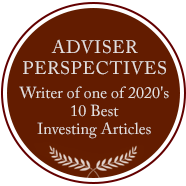DR DOOM STAYS IN THE BLACK WITH REALISTIC EYE ON MARKET
20 April 2009, Financial Times
 Nothing much surprises Henry Kaufman, who grew up in the shadow of the second world war in Germany during the Depression. “My generation is imbued with a greater fear of risk that just wasn’t evident in our current leaders,” observes Mr Kaufman. He argues this applies whether viewing quantitative managers who believed they were deriving foolproof methods for side-stepping economic meltdowns or financial regulators who embraced laissez-faire oversight.
Nothing much surprises Henry Kaufman, who grew up in the shadow of the second world war in Germany during the Depression. “My generation is imbued with a greater fear of risk that just wasn’t evident in our current leaders,” observes Mr Kaufman. He argues this applies whether viewing quantitative managers who believed they were deriving foolproof methods for side-stepping economic meltdowns or financial regulators who embraced laissez-faire oversight.
Among the leading economists and financial consultants in the US, Mr Kaufman, who earned the soubriquet Dr Doom for his bearish views during a quarter-century tenure at Salomon Brothers, has only been surprised by how long it took the economic crisis to hit.
As far back as the early 1980s, he had been concerned about the changing character of America’s financial structure and its growing vulnerabilities. “I spoke at a Federal Reserve Bank-sponsored conference in 1984, warning about the growing sophistication and opacity of our financial system, which demanded new supervision and regulations . . . But my concerns seemed very much out of place.”
Most worrisome to Mr Kaufman was the creation of mammoth financial conglomerates with huge balance sheets and thin capital bases that have magnified the debt problem through their seamless distribution of credit.
“Liquidity has come to mean your capacity to borrow,” he says, “and that has led to an extraordinary change in business and household finance”. The subsequent explosion of securitisations, credit derivatives, and soaring leverage has created far less transparent and less stable institutions.
While he believes the economy will not revisit the depths of the Great Depression, Mr Kaufman fears that may not be the case for the financial system, which will require continued massive public recapitalisation, vastly improved regulatory oversight, and revised standards for marking to market, which has proven to be the system’s Achilles heel. All of this is informing the way he is investing.
Mr Kaufman realised at the start of 2008 it would be a very difficult year, and took a variety of defensive steps. Because hedge funds can lock up investor capital during rough markets, Mr Kaufman started liquidating significant long-only hedge fund positions to avoid seeing his capital tied up. At the same time, he started shorting the S&P 500 index.
Having seen natural resources soar exponentially and sensing a protracted economic slowdown coming, he started liquidating his commodity exposure.
At the same time, he believed the UK economy was highly susceptible to the coming crisis, especially given its extensive exposure to leveraged financials and high interest rates, so he started building up a long UK gilt position. And throughout 2008 he was squirrelling away cash. Collectively, these moves helped him end 2008 in the black.
But in spite of these insights, Mr Kaufman was unable to save Lehman Brothers, where he chaired the five-member finance and risk advisory committee, which reviewed the doomed investment bank’s financial policies and practices, prior to its bankruptcy in September. For legal reasons he was unable to discuss his time at Lehman.
So far this year Mr Kaufman, who for the past 20 years has run his own consultancy, Henry Kaufman & Co, has continued to reduchis equity position while selectively adding municipal and short-dated, high-quality corporate bonds.
Asked whether the evident shortcomings of agency ratings have made debt investing more challenging, he believes the basics have not changed, that a triple A-rated bond stands a far better chance of sustaining long-term performance than triple B paper. But he says it helps to do one’s own due diligence before investing in any particular issue.
With credit ratings likely to fall further still, he thinks it would be wiser to start establishing a distressed debt position a bit further down the line when markets may be closer to bottoming. Sometime this year, he surmises, valuations will become more transparent.
Mr Kaufman is relaxed about the prospect of the bursting of any Treasury market bubble. He feels that, as long as private sector credit demands remain modest and monetary policy continues to be accommodating, the US government will have no problem issuing massive amounts of new bonds.
He thinks the Federal Reserve’s new commitment to buying longer-dated government debt will further stabilise prices.
However, in the next year or two, when he expects private market credit demand to pick up, Mr Kaufman anticipates a rise in intermediate and longer-term government bond yields.
If this scenario does play out, it does not ostensibly sound like it would benefit distressed debt. But Mr Kaufman sees current distressed spreads so wide that they would likely contract once the economy begins to expand again.
While many analysts argue that exorbitant federal spending will drive the dollar lower, Mr Kaufman expects the greenback to remain stable during this year and likely beyond because there is not a substitute currency.
He also fears high levels of foreign currency-denominated debt held by eastern European economies, whose own devaluing currencies will likely further exaggerate default rates. To Mr Kaufman, “this begs the question: who’s going to bail out eastern Europe, not to mention the troubled economies of Italy and Spain?”
With widespread macro stress, is going long gold a solid bet? Not to Mr Kaufman. “I wish I had clear thoughts about the metal one way or another,” he says, “but I don’t.”
How about bidding on drastically beaten down financials that have federal largesse backing them? “Not for me,” he says. “I don’t have a clear idea how to evaluate them at this time.”
While the mid-March rally sent stocks on a bit of tear after hitting 13-year lows, Mr Kaufman is by no means certain that the worst is over for equities. “Unfortunately, you can’t really know that until economic recovery has truly taken hold.”
But for those thinking it is time to start reloading on stocks, Mr Kaufman advises extreme caution. “Restrict your view to companies with strong balance sheets, leading market share, and those that stand a high probability of enjoying sharp earnings growth when the economy does eventually recover.”
Curriculum Vitae
Henry Kaufman Born: 1927
1948: New York University (BA in economics)
1949: Columbia University (MS in finance)
1958: New York University (PhD, banking and finance)
1957: Economist, Federal Reserve Bank of New York
1962: Managing director, member of the executive committee and head of research, Salomon Brothers
1983: Vicechairman, Salomon Inc
1988: President, Henry Kaufman & Co
Chairman of Lehman Brothers’ finance and risk advisory committee until September 2008



 GIR's Investing in the New Europe
GIR's Investing in the New Europe



